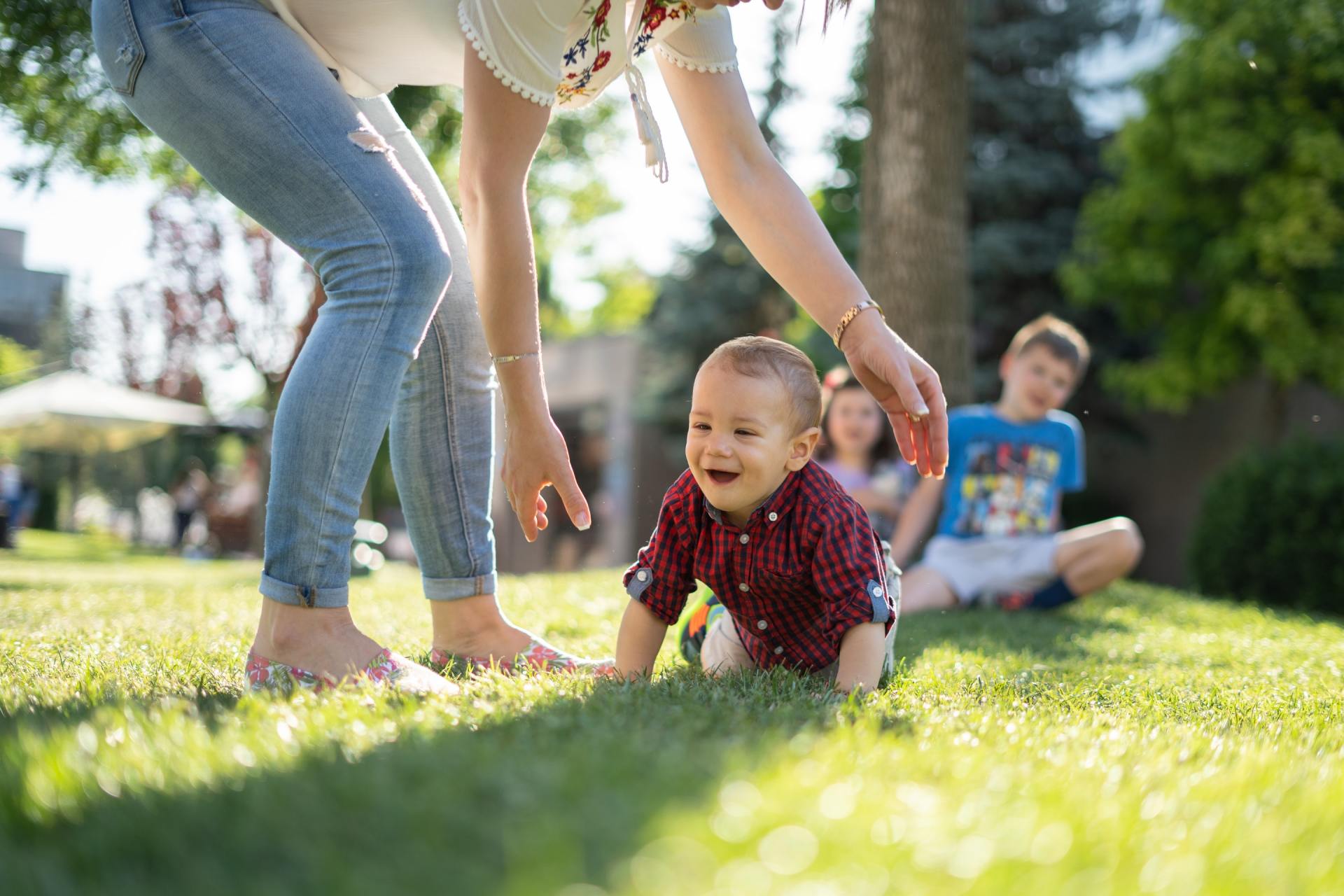This understanding belongs to the growing field of epigenetics. Epigenetics is the study of the epigene, the complex sheath of proteins that surrounds DNA; this is where various genes are switched on and off. According to researchers, taking up a healthy lifestyle habit can alter the activity of 500 genes. So according to epigenetics, positive NYRs like resolving to meditate daily, get more sleep, eat more plants and exercise regularly can have a beneficial effect all the way down to the genetic level.
These behavioural changes can be passed on to the next generation, through so-called "soft" inheritance. So even though the genes a child receives from its father and mother are fixed, events that changed the parents' epigene (either positive or negative events) can be passed on without altering the genome, only its activity. A key experiment with mice showed that a mouse who benefited from good mothering or suffered from bad mothering was likely to become a good or bad mother in turn and pass the behaviour along to the next generation. Similar findings of events that affected our ancestors are beginning to crop up in human studies.
The genes you're born with remain the same throughout your lifetime, but the activity of those genes varies considerably, not just from year to year, but also minute to minute. The genetic readout of two identical twins is the same at birth but looks very different by age 70. By then, they are no closer than two siblings who aren’t identical twins.
In reality, everything you say, think, or do sends a message that’s received by every cell at the genetic level. Thus the old picture of genes as fixed, static things has been radically revised: your genetic material is active and highly responsive to such things as thoughts, feelings, behaviour and the environment. So if you’re thinking about some NYRs and you need a bit more motivation, see your positive lifestyle choice as affecting the epigene of future generations.
Margot Wagner
Yoga Under the Bodhi Tree
(Find and like articles similar to this on my Facebook Page: Yoga Under the Bodhi Tree)
MORE SCENIC NEWS
-
A NEW CHAPTER FOR WOLVES BASKETBALL
Mar 28, 2024ButtonAs the sun sets on an incredible experience, it's time for me, Adam Chanter, to say farewell as the Pre...
-
GRAND OPTIONS CATER TO MOST NEEDS AND TASTES
Mar 28, 2024ButtonFor weddings, services can be held in The Old Church, which stands as a proud member of architecturally sig...
-
ANNE HOITINK – APRIL 2, 1945 – MARCH 15, 2024
Mar 28, 2024ButtonMigrated to Australia on 29 November 1952, aged 7 years. Going directly to the suburb of Reid in Canber...
-
GREAT SUCCESS FOR LITTLE ATHLETES
Mar 28, 2024ButtonRuby, Lily, Talia, Torah, Hugo, Leiawyn, Aric, Dean, Mitchell, Harvey and Noa; you all should be so proud ...
-
COMMUNITY CAMERA ALLIANCE – YOUR CHANCE TO HELP
Mar 28, 2024ButtonIt's essential for community members to remain vigilant and take steps to safeguard their properties and vehicle...
-
KERRI: AN HONOUR TO FILL THE ROLE FOR DIVISION 2
Mar 28, 2024ButtonDuring the pre-poll part of the campaign, I was very grateful for the opportunity to be able to meet an...
-
GALLERY’S $30,000 MAJOR ART AWARD RETURNS
Mar 28, 2024ButtonThe award, named after the sacred mountain which the Gallery overlooks, is open to artists living across the...
-
DO HOP IN FOR A NEW MONTE LUPO EXHIBITION
Mar 28, 2024ButtonMonte Lupo was established by Multicap in 1991 to provide meaningful employment to people living with di...
-
BREACH OF CODE: RULING ON MAYOR CHRISTENSEN RAISES MORE VOTER CONCERNS ON ELECTION EVE
Mar 14, 2024ButtonAdditionally, Christensen is to bear his legal costs, with a warning that any future infractions will be classifie...
-
THE LONG ROAD SPORTS CENTRE AND REGIONAL SPORT - WHERE DO YOU STAND
Mar 14, 2024ButtonThe SRRC Sports strategy 2010-2020 is to be shortly superseded by the 2024 – 2034 SRRC Sports Strategy....
LOCAL BUSINESS
COLUMNS
-
Beauty & Wellness
ButtonWriter: Rebecca Mander - Naturally Cos
-
Community Care
ButtonWriter: Geoff Marshall
-
Embrace
ButtonWriter: Jaap Vogel
-
Food for Thought
ButtonWriter: Dylan Gittoes
-
Hooked on Books
ButtonWriter: Friends of TM Library
-
Living with Dogs
ButtonWriter: Pam Brandis (Dip. Canine Prac.)
-
Nature Notes
ButtonWriter: Nadia O’Carroll
-
Pastor Kim
ButtonWriter: Pastor Kim Dale
-
Physio Talk
ButtonWriter: Neil Bell (Tamborine Mountain Physique)
-
Police News
ButtonWriter: Sgt Mark Shields
Officer in Charge
North Tamborine Police
-
Politics
ButtonWriter: Local Councillors and Representatives
-
Relationships
ButtonWriter: Linda Gray
-
The Mtn Midwife
ButtonWriter: Bree Lowing (Registered Midwife)
-
Travelling Places
ButtonWriter: Travelling Places Tamborine Mtn
-
Wine chat
ButtonWriter: Imogen Mulcahy
-
Yoga Under the Bodhi Tree
ButtonWriter: Margot Wagner
Your Local Paper
to read, keep & share

Your Local Paper
to read, keep & share
CONTACT
PO Box 118, North Tamborine Qld 4272
Phone: 0407 671 286
Email:
news@tmnews.com.au
ads@tmnews.com.au
Design by BjornSchmal.com


















